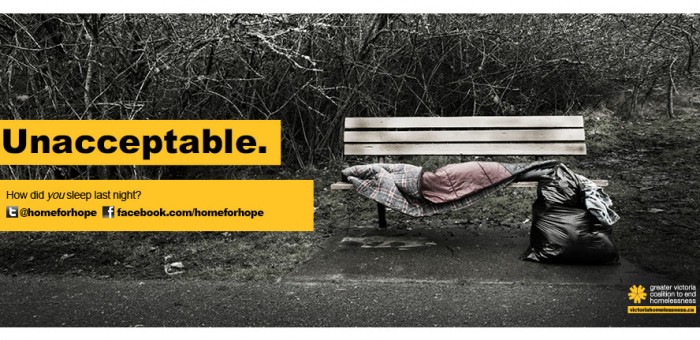Social Development
Multiculturalism Grants Program
Community Organizations throughout British Columbia have until December 13th, 2015 to apply for the Provincial Government’s Multiculturalism Grants Program.
Offered by the Ministry of International Trade and Responsible for Asia Pacific Strategy and Multiculturalism and administered by the Gaming Policy and Enforcement Branch, Multiculturalism Grants support cultural expression and anti-racism programs and projects that raise awareness about or enhance B.C.’s multicultural identity.
Organizations can apply for a grant through two streams:
Stream A: Cultural Expression – Projects which raise awareness about B.C.’s rich multicultural identity through cultural events and/or resource tools. This could include festivals, community forums, cultural celebrations and materials that support positive expressions of culture and traditions in a community.
Stream B: Anti-racism – Projects that challenge racism and hate, especially those that utilize a collaborative and community approach. This could include community forums, public engagement sessions, interfaith dialogues, collaborative arts projects (dance, theatre, visual arts) and educational workshops that engage community members in addressing racism and hate.
For more information on the program and how to apply, please click here.
Bill 41 — Miscellaneous Statutes Amendment Act (No. 3), 2015
Today in the legislature I rose to speak at second reading on Bill 41, Miscellaneous Statutes Amendment Act (No. 3), 2015. Bill 41 proposed amendments in four general areas:
- Advanced Education
- Children and Family Development
- Energy and Mines
- Justice amendments
I generally spoke in favour of the amendments with notable caveats that I will explore further tomorrow at Committee stage. Below are the text and video of my speech.
Text of my Speech
A. Weaver: I rise to speak to Bill 41, Miscellaneous Statutes Amendment Act (No. 3), 2015. It’s another one of the miscellaneous statutes acts, this one with amendments in four different areas — the first, of course, being Advanced Education amendments that my colleague from Victoria–Swan Lake discussed recently. Part 2 is Children and Family Development amendments; part 3, Energy and Mines amendments, specifically with respect to BCUC; and part 4, Justice amendments.
This bill actually covers a rather large number of bills within the four categories: the Child, Family and Community Service Act; the College and Institute Act; the University Act; the Interjurisdictional Support Orders Act; and the Utilities Commission Act.
The amendments clarify a few definitions and generally expand regulatory and exemption powers for the Lieutenant-Governor-in-Council or, in the case of the Utilities Commission Act, the minister assigned in the place of the Lieutenant-Governor-in-Council. This amendment bill seems to follow a pattern of a rather large number of these bills we’ve seen this year where the legislation is made somewhat increasingly vague and left up, often, to the discretion of the appointed minister or regulator.
With respect to the Child, Family and Community Service Act, the amendments are said to enable the expansion of the agreements with young adults program, allowing the Ministry of Children and Family Development to extend the duration of agreements and raise the age limit. Now, this is important. This is an important piece of legislation that is dealing with the transition of youth from the ages of 18 to 19 who often fall between the cracks as they move from being a child to an adult. Being able to allow the…. The amendment will allow and enable agreements to be used for life skills programs, in addition to the current educational, vocational and rehabilitation programs, meaning that children will be able to transition better.
I was speaking this last Saturday with an RCMP officer from the Victoria region, out on the West Shore, who said that the single most common call they get are calls with respect to adolescent mental health issues. Now, part of the problem, of course, is that these adolescents who move into adulthood fall between the cracks after they age out. This legislation allows ministries to actually coordinate — extend the coverage — under Children and Family Development, and it’s a very fine piece of legislation that I’m very proud to support.
On the same note, the changes to the Interjurisdictional Support Orders Act add further amendments that I’m very pleased to support. In particular, the changes will allow for child and spousal support decisions from other provinces and territories and countries to be more efficiently processed. The administrative changes will allow support order decisions from jurisdictions that do not provide court-certified copies of decisions, such those reached by tribunal, to be registered with the B.C. court. In addition, instead of using the court sheriff services to serve applications for support from other jurisdictions, the director of maintenance enforcement will now use a private process server.
Out-of-province support orders are often hard to collect and said to account for about 11 percent of family maintenance enforcement program cases. So again, an important piece of legislation within the broader Miscellaneous Statutes Amendment Act.
Then we move to the Utilities Commission Act changes. Now, the member for Vancouver-Kingsway — I believe it was Vancouver-Kingsway — gave a very eloquent and fine analysis of the changes to the Utilities Commission Act, in particular how it affects BCUC. The changes include…. They’re being told to implement recommendations from the BCUC — British Columbia Utilities Commission — Core Review Task Force. That task force was initiated by government in 2014 in responses to concerns raised by customer groups and utilities about BCUC’s capacity to deliver clear and timely decisions.
The proposed legislative amendments are said to increase the BCUC’s effectiveness and efficiency and reduce the cost of regulation for ratepayers, who pay for BCUC in their utility raise. It all sounds fine at face value, but in terms of the implementation, what’s being proposed is that the amendments really seem to focus on increasing power and exemption abilities of the minister.
Now, while some ratepayer groups consulted during the core review are said to support these changes, it’s a disturbing trend that we’re seeing more and more often within this government’s legislation: to put more and more power in the hands of fewer and fewer and ask British Columbians to trust us. As we saw earlier today, there are times when “trust us” simply is not good enough.
The final component of this Miscellaneous Statutes Amendment Act is with respect to changes to the College and Institute Act and the University Act. As I mentioned, my colleague from Vancouver–Swan Lake did a fine job outlining some of the…
Interjection.
A. Weaver: Did I say Vancouver–Swan Lake?
With humble apologies to the member from Victoria-Quilchena, the member for Victoria–Swan Lake outlined some of the issues that some university student groups have felt concern on. The amendments here to both the University Act and the College and Institute Act make adjustments to how fees are collected, or can be collected, from people who leave student societies. The Minister of Advanced Education says he will consult with student societies to determine which program or service fees should be protected under legislation.
I understand why this legislation was brought in. With the recent passage of the Societies Act, we were left with a rather concerning gap in legislation, which led to questions as to what would happen to the fees if students pulled out of the student societies. I recognize that the minister, in consultation with a variety of student groups, put forward the amendments that we see before us today in both the order papers as well as in the original act.
There has been some concern that too much power will be granted to the minister to determine what is or is not considered a fee. It’s something that…. Rather than pass judgment on it at this particular junction, I will ask for some specific examples during committee stage, to get on record a certain number of these examples to see whether or not this is what the minister believes to be considered as student fees or student charges.
As the member for Victoria–Swan Lake…. The UVic Students Society has been quite vocal about their concerns with this specific piece of legislation. They knew that changes regarding fees levied against those who leave the student society were coming. They were concerned. They did not expect the format that the government used to bring these changes in to be the one we see today. In fairness to the minister who brought in the changes, it’s not clear to me, in the time frame that the minister had, that it was able to, under the same umbrella, bring all potential types and qualifiers and identify all those that would be viewed to be student fees now. The minister has committed to engaging student groups in the future to discuss this.
Nevertheless, it has left an element of uncertainty. When there’s uncertainty, there’s concern, because student groups — not only the University of Victoria and others — believe that they are being asked to trust us once again.
I will say that the student group at the University of British Columbia seemed to be more supportive of the changes as put in, although they, too, note the irony of almost a catch-22 being in place. I don’t think it’s fair, but a catch-22 is in place, where they say that the Societies Act seems to imply, quite logically, that only members of a society can cast votes on society business.
Yet there is an administrative problem, because students who resign their membership must continue to pay student fees. The bill specifies that these students must also continue to have voting rights. That seems to be in conflict with the Societies Act. But, as I will outline, there are ways around this, which brings me to a comment. I’m concerned that, in fact…. Ironically, in light of the amount of time we’ve spent during this session discussing red-tape reduction, it seems to me that one of the consequences of this amendment is a rather substantive increase in red tape to be applied to student organizations in British Columbia.
The bill separates the fees that students face into multiple, regulation-dependent categories, which may operate in different ways. There are a number of issues that I can think of that need to be addressed in the committee stage, as I mentioned, that I’ll cover later. But first, this bill creates the so-called red tape for student societies that I alluded to earlier as follows.
Previously, a simple annual vote took place. Annually, students would vote. That vote took place to elect a student board and was used to pass any new funding. The student board would be elected. New funding would be approved or not approved by a referendum, and it would be done with all students who are members of the student union or society voting.
However, the bill appears to morph this process into a far more convoluted red-tape process. I should have worn some red tape over my suit here today. Student societies must now account for a new category of students who will cast ballots on funding referendums and not on the student election.
This strikes me as odd — that you’ll have various groups of students voting on various things, in light of the fact that student turnout at the best of times is not as high as it could be. They already suffer from limited turnout in many universities around the province, let alone making this much more complicated and having different categories of students being able to vote for something or against something.
Secondly, the bill confers, I would argue, unnecessary powers to the minister to decide which fees apply in which ways. Now again, I recognize that this probably was left as a matter of regulation in light of the timeliness of trying to get something passed this session so that student groups collecting fees from students who secede from the union or society that represents them would be in place sooner than later. I recognize that.
However, there are questions that we can explore at committee stage, and they’ll follow along these lines. In general, there’s an issue with the increased reliance on regulation to set policy. However, in that case, there should be a simple remedy. Consult with student unions about the specific fees they levy and draft the legislation accordingly.
Again, we are told that the regulations will come in place through consultation with the student groups. Again, as I’ve argued earlier and pointed out, some of these student groups more so than others feel that they’re being asked to trust the government. Depending on the various student groups, some will trust them more than others.
Interjection.
A. Weaver: The minister, of course, is suggesting that we should all trust government. Well, as I mentioned earlier, trusting government in many cases is simply not good enough. We don’t have to reiterate the example we heard today during question period and the resolution I brought forward for emergency debate on the Shawnigan Lake situation.
The change, as I mentioned, also appears to allow the government to decide which fees are appropriate. That, again, could potentially limit the union’s or society’s ability to challenge government decisions it doesn’t support.
Let’s suppose, hypothetically, that the university of somewhere in B.C. decides to form…. Through referendum, the students decide that they want to put a group there, a union. Their union, through the fees, have decided a club is going to be formed. It’s going to be the “We have to get the Liberals out in 2017” club.
Now, that’s a fee that has been approved by referendum, and students then…. Maybe one or two in the university who don’t agree with that pull out of the student society. The decision as to whether or not that fee that was elected democratically…. Whether or not the students who pull out can actually take their payment of the fees with them is left up to the minister to decide.
Clearly, there is a potential conflict there. There’s a potential question as to whether or not the minister will or will not support. I gave a rather crass example. But we could actually move a little closer to where it’s not so clear. Obviously, all of British Columbia has sincere trust in the present Minister of Advanced Education to do absolutely no wrong at any time. Let’s suppose, hypothetically, that there were a minister who ideologically did not believe that men could be with other men and marry other men, and that therefore that minister…. I’m sure there are many of them in this government who feel that way strongly. Perhaps they are in a position of decision-making.
They, then, could decide: “You know what? These fees are not allowable.” Hence the concern of some student groups over others. Now, as I pointed out, this clearly would not happen in British Columbia with the esteemed leadership of the Minister of Advanced Education, also representing Vancouver-Quilchena. But there may be other ministers, at some point in the future, who will be less trustworthy.
Finally, I will say that much of this I’m going to try to deal with in committee stage, by providing specific examples of specific clubs that do exist already in some universities, and see whether or not the fees to these clubs were the types of fees that the minister was thinking are allowable to actually be passed on as a direct cost back to the students union if the students pull out of the union or the society that represented them.
With that, I thank you for your time.
Video of my Speech
Challenges Facing Mining in British Columbia
Introduction
 Earlier this week I published an account of my recent trip to the Kootenays where I visited a number of mining operations, and met with people in local communities. Mining is a key economic sector underpinning BC’s economy. The industry directly employs 10,720 British Columbians, contributes $8.5 billion to BC’s GDP and a further $511 million in tax revenues to provincial coffers. Numerous small communities throughout our province depend on mining for their survival.
Earlier this week I published an account of my recent trip to the Kootenays where I visited a number of mining operations, and met with people in local communities. Mining is a key economic sector underpinning BC’s economy. The industry directly employs 10,720 British Columbians, contributes $8.5 billion to BC’s GDP and a further $511 million in tax revenues to provincial coffers. Numerous small communities throughout our province depend on mining for their survival.
While we have much to celebrate about British Columbia’s mining industry, there are also a number of challenges that must be taken seriously. The BC Government has a critical role to play in ensuring that the standards that regulate this industry are kept up to date, and that in addition to the economic benefits mining provides our province, its social and environmental impacts are being accounted for seriously.
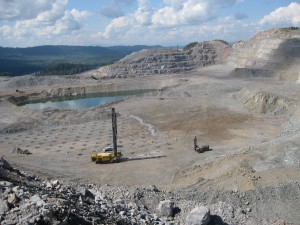 To explore some of the challenges facing this industry – and to highlight some of the solutions that are readily available, I want to turn to two specific and related issues. First, I want to explore how mines manage their tailings ponds. I will specifically look at what we have learned since the Mount Polley tailings pond breach.
To explore some of the challenges facing this industry – and to highlight some of the solutions that are readily available, I want to turn to two specific and related issues. First, I want to explore how mines manage their tailings ponds. I will specifically look at what we have learned since the Mount Polley tailings pond breach.
The second issue I will examine concerns the enforcement and regulatory functions of government and whether adequate funding is being provided by government to ensure that it is managing the environmental and social consequences of mining operations.
Impacts of the Tsilhqot’in decision
 Before diving into these issues, I think it is first important to acknowledge that for the mining industry in BC to continue to succeed, and do so in way that is environmentally and socially responsible, the BC government must ensure it is addressing the requirements placed on it by the Tsilhqot’in decision. We are already seeing examples of how this decision may affect mining investment. It was announced earlier this week that the BC Government bought back 61 coal licences from a mining company in the Northwest of the province, in order to provide a longer window for the BC government to engage in more meaningful government-to-government negotiations with the Tahltan First Nation.
Before diving into these issues, I think it is first important to acknowledge that for the mining industry in BC to continue to succeed, and do so in way that is environmentally and socially responsible, the BC government must ensure it is addressing the requirements placed on it by the Tsilhqot’in decision. We are already seeing examples of how this decision may affect mining investment. It was announced earlier this week that the BC Government bought back 61 coal licences from a mining company in the Northwest of the province, in order to provide a longer window for the BC government to engage in more meaningful government-to-government negotiations with the Tahltan First Nation.
Whether or not this specific policy tool — the re-purchasing of mining licences — becomes commonly used by the BC government, the status quo of mining development is likely to change. The Tsilhqot’in decision made it clear that First Nations have significant say, if not an outright veto, over developments on their land. Last summer the Tsilhqot’in First Nation established new rules for mining development on their titled land. These rules require companies to minimize negative impacts and provide revenue sharing with the community.
Mining companies who wish to develop new mines in British Columbia will need to put an even greater focus on consulting, and ultimately addressing the concerns of not only the BC Government, but First Nations who may have inherent title rights to the land.
Learning from Mount Polley
The mining industry in British Columbia was rocked last summer when the tailings pond at Mount Polley breached its impoundment dam, and released almost 25 million cubic meters of tailings and waste water into the Hazeltine Creek, and down into Quesnel Lake.
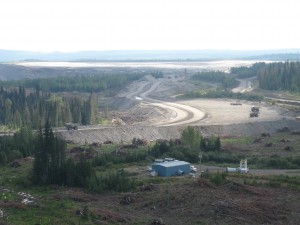 I wrote about this breach when it first happened, and after visiting the mine site and the surrounding communities, I explored in detail what had happened, and what some of the consequences were likely to be. Finally, in January of this year, the Independent Expert Engineering Investigation Review Panel published their report on the Mount Polley Breach. This Panel was empowered to investigate and report on the cause of the failure of the tailings pond facility that occurred on August 4th, 2014 at the Mount Polley Mine. In addition, they were asked to provide recommendations regarding how such an incident could be avoided in the future. It is these recommendations that I will focus on.
I wrote about this breach when it first happened, and after visiting the mine site and the surrounding communities, I explored in detail what had happened, and what some of the consequences were likely to be. Finally, in January of this year, the Independent Expert Engineering Investigation Review Panel published their report on the Mount Polley Breach. This Panel was empowered to investigate and report on the cause of the failure of the tailings pond facility that occurred on August 4th, 2014 at the Mount Polley Mine. In addition, they were asked to provide recommendations regarding how such an incident could be avoided in the future. It is these recommendations that I will focus on.
The Mount Polley tailings pond breach has shattered public confidence in government and industry ability to adequately protect the natural environment during mining operations. Regaining public trust and confidence is perhaps the greatest challenge facing the mining industry. First Nations, the Alaskan Government and Environmental groups have all raised similar concerns. How industry and government collectively respond to the Mount Polley breach will be critical in rebuilding this trust. And an ongoing examination of how mines are managing their tailings and waste, as well as a determination as to whether or not these reflect best practices, will almost certainly be one of key elements of moderating the concerns of British Columbians.
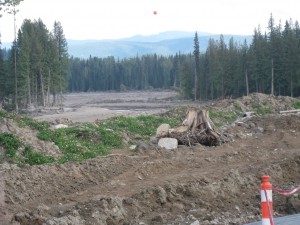 The Expert review panel touched on this point at the start of Section 9 of their report. Section 9 – entitled “Where Do We Go From Here” – explored how the BC mining industry can use best practices and best available technologies (BAT) to reduce failure rates to zero.
The Expert review panel touched on this point at the start of Section 9 of their report. Section 9 – entitled “Where Do We Go From Here” – explored how the BC mining industry can use best practices and best available technologies (BAT) to reduce failure rates to zero.
In the introduction to this section, the Panel rejected the concept of a “tolerable failure rate for tailings dams”, citing concerns that this would institutionalize failure. To quote from their report: “First Nations will not accept this, the public will not permit it, government will not allow it, and the mining industry will not survive it”.
A similar concern was voiced this week by Alaskan government, industry leaders and First Nations, who were in Victoria to meet with Minister’s regarding their concerns about the scale of development taking place in the British Columbia.
The tailings breach at Mount Polley was cited as having raised concerns about the potential impacts on the fishing industry in the region. The Alaskan delegation also felt that the review process in British Columbia was inadequate and not placing enough focus on potential cumulative impacts.
Interestingly both the Expert Review Panel and the group from Alaska pointed to the need to change the way that tailings are managed in this province.
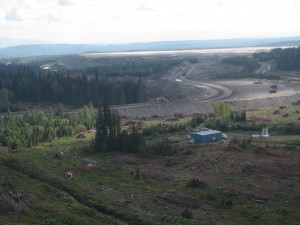 The panel established three conditions that addressed the instability that is created when mines use dual-purpose impoundments, storing both water and tailings. Best available technology would dictate that where possible these two waste products need to be stored in separate facilities that are specifically designed to prevent tailings releases. Critically, this panel also noted that economic considerations cannot be allowed to be the dominant factor in determining what is feasible – the costs of another accident far outweigh the implementation of best practices and technology.
The panel established three conditions that addressed the instability that is created when mines use dual-purpose impoundments, storing both water and tailings. Best available technology would dictate that where possible these two waste products need to be stored in separate facilities that are specifically designed to prevent tailings releases. Critically, this panel also noted that economic considerations cannot be allowed to be the dominant factor in determining what is feasible – the costs of another accident far outweigh the implementation of best practices and technology.
Following the establishment of the Best-Available-Technology (BAT), the Expert Panel made the following recommendations:
- “For existing tailings impoundments: Constructing filtered tailings facilities on existing conventional impoundments poses several technical hurdles. Chief among them is undrained shear failure in the underlying saturated tailings, similar to what caused the Mount Polley incident. Attempting to retrofit existing conventional tailings impoundments is therefore not recommended, with reliance instead on best practices during their remaining active life.
- For new tailings facilities: BAT should be actively encouraged for new tailings facilities at existing and proposed mines. Safety attributes should be evaluated separately from economic considerations, and cost should not be the determining factor.
- For closure: BAT principles should be applied to closure of active impoundments so that they are progressively removed from the inventory by attrition. Where applicable, alternatives to water covers should be aggressively pursued.”
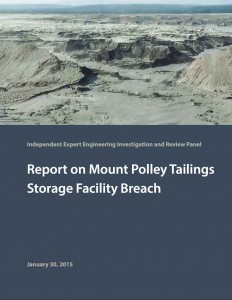 The BC Government has been somewhat responsive to this report. In mid-March they announced new interim rules for tailings ponds which would require companies seeking to build a mine in BC to include the best-available technologies for tailings facilities in their application. The Ministry of Mines are currently completing a review of mining regulations that will eventually establish the new way of doing business in BC.
The BC Government has been somewhat responsive to this report. In mid-March they announced new interim rules for tailings ponds which would require companies seeking to build a mine in BC to include the best-available technologies for tailings facilities in their application. The Ministry of Mines are currently completing a review of mining regulations that will eventually establish the new way of doing business in BC.
However in response to calls from Canadian and American groups to end the use of water based storage facilities, the Minister of Energy and Mines suggested that the expert panel’s bottom line is about reducing water storage of mine waste where you can, and reducing the risk by increasing safety factors. This statement, I fear, betrays a lack of commitment to the true underlying issue highlighted in the report – that the status quo cannot continue and that we must throw out any notion of acceptable risks. I share the frustrations of these groups that we have failed to see an open and transparent commitment to the recommendations of the Expert Report.
This process cannot be taken lightly by government. The Mount Polley breach was devastating to the community of Likely, and even today uncertainty exists as to the full extent of the environmental, social and economic costs that are faced by residents. Evidence of this uncertainty can be found in a recently research paper in Geophysical Research Letters that points to the possibility of ongoing and long-term environmental impacts from the spill on aquatic life. At the very least, long term monitoring of water and sediments in Quesnel Lake will be important.
The solutions are there — they are contained in the path forward highlighted by the Expert Panel. British Columbians deserve government to ensure that it establishes a truly credible mining regime in British Columbia, one which commands the confidence of all those who would feel its impacts. It is only under such a regime, where companies are responsible for the environmental and social impacts of their developments, that mining can be truly successful in our province.
This brings us to the second related issue facing this industry – Government’s ability to regulate and enforce the standards they set for the industry.
Professional Reliance
In 2001 after the BC Liberals were elected to their first term, they began a comprehensive core review to cut the size of government. Premier Campbell asked all government departments to prepare scenarios as to what it would look like with 20%, 35% and 50% cuts to spending. As a direct consequence of government downsizing, technical expertise within the civil service became a casualty. Instead of having technical expertise in house, the government moved towards wide scale use of Professional Reliance in the permitting process. Under the Professional Reliance approach, the Ministry relies on the judgment and expertise of qualified experts hired by a project proponent.
What is particularly important to note is that in March 2014, the Office of the British Columbia Ombudsperson released a scathing report criticizing the Professional Reliance model with respect to streamside protection and enhancement areas. The report, entitled The Challenges of Using a Professional Reliance in Environmental Protection – British Columbia’s Riparian Areas Regulation made 25 recommendations, 24 of which the government agreed to accept.
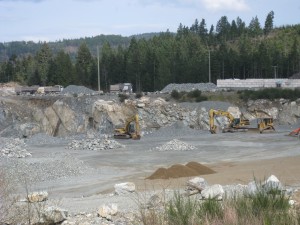 My own personal view is that the government’s approach to follow the Professional Reliance model is fraught with difficulties. The role of the government is to protect the public interest. When government is making decisions solely based on a project proponent’s expert opinion, it is very troubling. Imagine a judge in a court of law only listening to the expert opinion on one side of a case (plaintiff or defendant) and not allowing expert opinion to be submitted from the opposing side.
My own personal view is that the government’s approach to follow the Professional Reliance model is fraught with difficulties. The role of the government is to protect the public interest. When government is making decisions solely based on a project proponent’s expert opinion, it is very troubling. Imagine a judge in a court of law only listening to the expert opinion on one side of a case (plaintiff or defendant) and not allowing expert opinion to be submitted from the opposing side.
There is no doubt that mining plays a very important role in our economy. Mining provides us with the basic elements with which we have built British Colombia into a prosperous and successful jurisdiction. However, the mining industries’ importance to our economy does not disconnect it from its responsibility to conduct itself in a way the is both environmentally and socially responsible. The Expert Review panels report made it clear that the status quo is no longer acceptable and that change is needed. However, for industry to embrace this change, the BC government needs to step up to the plate. The lack of funding for the compliance and enforcement sections of our resource and environment ministries is putting us at risk of another accident. Furthermore, if we expect the mining industry to take the Expert Review panel’s recommendations seriously, we also need to be convinced that government takes them seriously as well.
Disappointing Answers from Government on Income Assistance Rates
Today in Estimates I had the opportunity to ask the Minister of Social Development and Social Innovation two questions concerning poverty, homelessness and affordability. I ended up not asking the third question. Earlier in the day government announced changes to the support for single parents on income or disability assistance; yesterday government also announced changes to the support for families with children who receive income assistance.
My third question would have been:
“In the Premier’s mandate letter to the Ministry of Social Development and Social Innovation on June 10, 2014, the Ministry was mandated to work with the Ministry of Children and Family Development to provide options to Cabinet that will ensure barriers are removed for single mothers looking to develop their skills to secure long-term employment. Given that lone-mother families are at a much higher risk of living in poverty than lone-father families and couple families, this mandate is important for addressing BC’s growing child poverty rate. What has the Ministry done over the last year to ensure that this mandate is met and what steps does this budget take to improve upon the work that is already being done?”
Based on the disappointing answers I received on my first two questions, I expected that I would simply be told about the two recent announcements government made.
Below I reproduce the exchange between the Minister and me.
Question
On plans to increase income assistance rates
A. Weaver: I recognize that a version of this question may have been asked. I’ve just got three questions. I am trying to put together the answers so that I can use them in the further work that we’re doing in my riding on the issue of poverty.
The first question is with respect to income assistance rates in B.C. which, as the minister will know, have not increased since 2007, with maximum monthly shelter allowance for a single individual on income assistance set at $375.
As of April 2013 the average monthly rent paid by someone on income assistance in greater Victoria was $501. These monthly rent rates are consistent throughout the province, if not even more in some jurisdictions.
My question is this. Does the minister have plans to increase income assistance and shelter allowance rates in order to keep up with inflation and market pricing? If not, why not?
Answer
Hon. Michelle Stilwell: To the member: I expected you to provide questions to me ahead of time like you give everybody else, but thank you for your question.
We acknowledge that it is very challenging for people who are living on income assistance, and we have definitely made the commitment to raise the rates when the fiscal situation allows. But most importantly, we continue to refine the policies that we have within my ministry and within other ministries, as we saw today with the announcement we made for single parents. We’ve also made the announcement a few months ago about the annualized earnings exemptions for persons with a disability, the child support exemptions, the increase in exemptions that we saw yesterday. There are ways that we can refine the policies in the meantime while we continue to try and make life better for those individuals who rely on us most.
Question
On plans to increase support for brain injury survivors
A. Weaver: I do apologize for not providing questions in advance. I normally do that. I’m just not that organized now because there are so many bills that are coming before us so quickly. They’re coming up so fast that I’m unable to actually stay more than, like, half a day ahead of this.
Here’s my second surprise question. Studies have found that 52 percent of people on the streets have brain injuries. Approximately 74 percent of those individuals had their brain injury before becoming homeless. Given these findings and the fact that responsibility for social assistance programs falls under the mandate of the Ministry of Social Development and Social Innovation, has the ministry considered working with the Ministry of Health to address the need for improved supports and services for brain injury survivors?
Answer
Hon. Michelle Stilwell: Yes, we do actively work with and in partnership with the Ministry of Health but also with health authorities, other non-profits, B.C. Housing, multiple partnerships around. When it comes to the Ministry of Health, we use our ACT Teams with the outreach to ensure that the homeless, including those who are brain-injured, are actively brought into the income or disability system.
Most likely, a person with a brain injury would qualify for PWD, and we would have expedited services for access to the Medical Service Plan and the PharmaCare plan as well. I certainly recognize and acknowledge the concern that you’ve brought forward.
Celebrating the Contributions of The Mustard Seed
Today I rose in the Legislature to recognize the Mustard Seed, a non-profit organization that provides crucial services to address food insecurity in the Capital Regional District, mainly to children and families. Approximately 20,000 people (over 6% of the population) are moderately to severely food insecure. Since 2010, the number of individuals assisted by the Mustard Seed has increased from 4,000 to 7,000 per month.
The Mustard Seed has been exploring ways to move away from a traditional food banking model, focused primarily on processed, non-perishable food items, to one that provides fresh, healthy food, thereby improving health outcomes for food insecure people.
Their vision is to create a three-tiered food access system, subsidized through social enterprise, with emergency, preventative and retail components – with the latter two components supporting operational costs of the emergency programs. A proposed processing and community kitchen component would enhance food skills literacy and provide employment and skills training opportunities.
The Mustard Seed’s vision aligns with the Ministry of Health’s priorities for short-term food relief and longer term food security.
While currently there is insufficient storage space available for both non-profits and food retailers to manage the necessary volume to meet the food security needs of our communities, the Mustard Seed is working hard to develop solutions.
With the support of the community and government, the Mustard Seed hopes to realize their vision of a food secure region with a transformed, sustainable, non-profit/social enterprise model.
I want to thank them for their more than 40 years of service in our community and I commend then on their vision.




